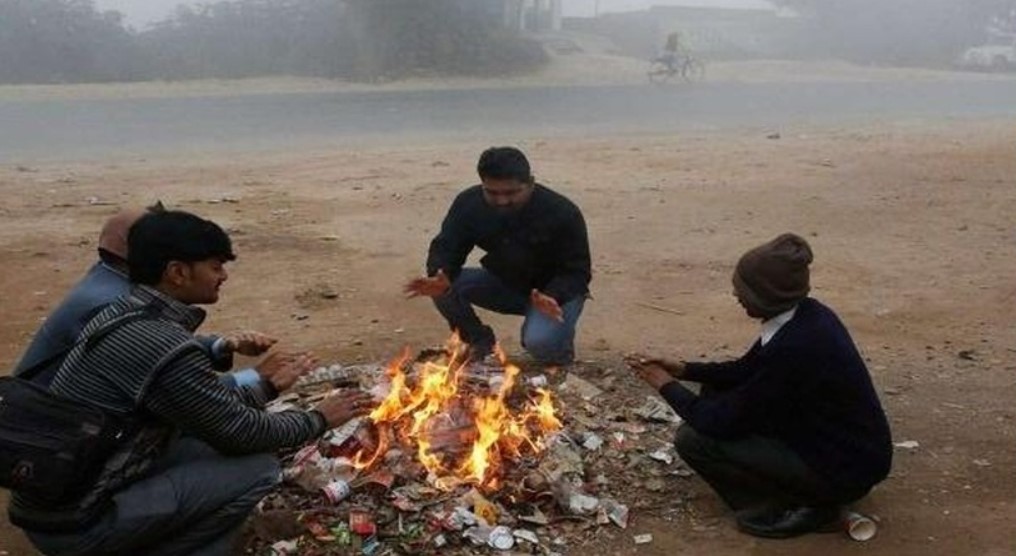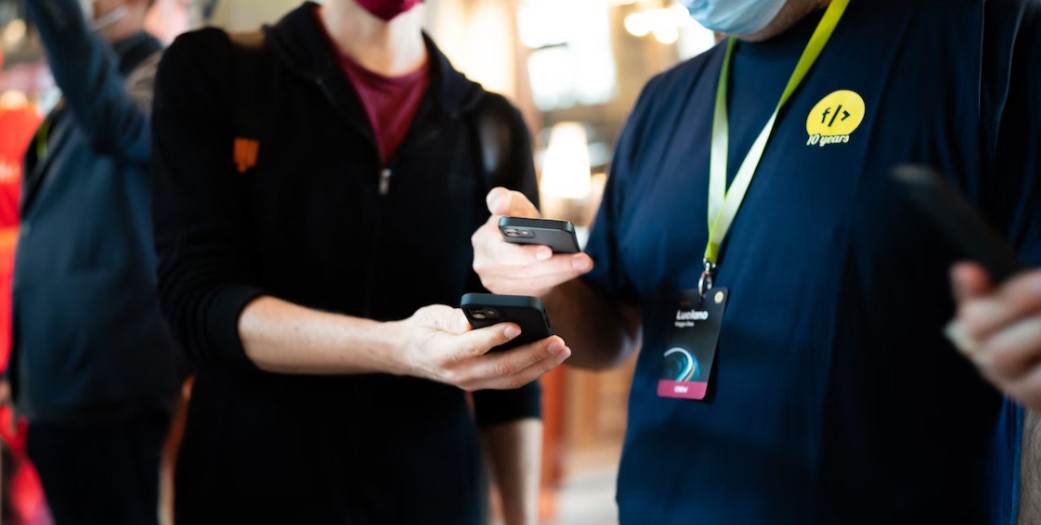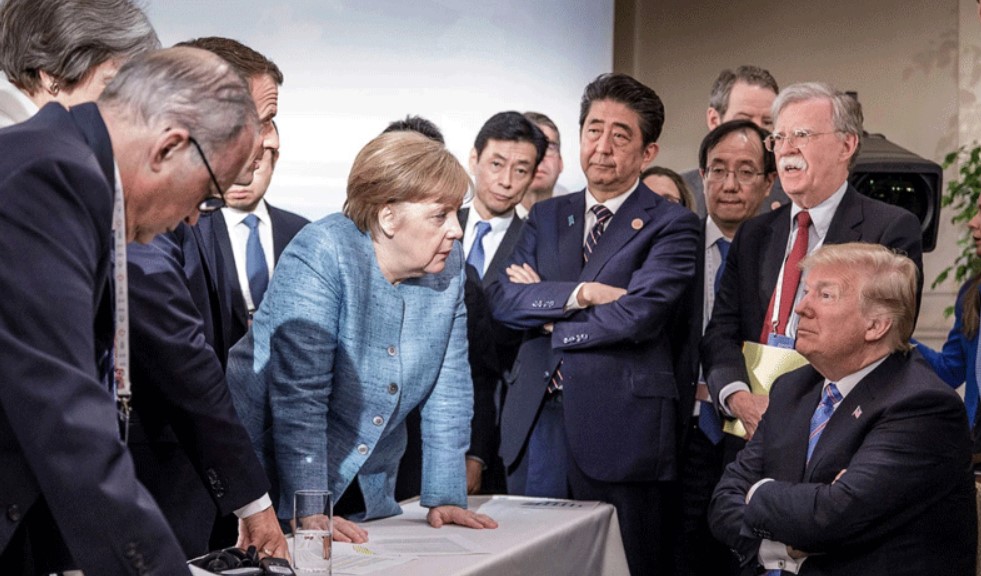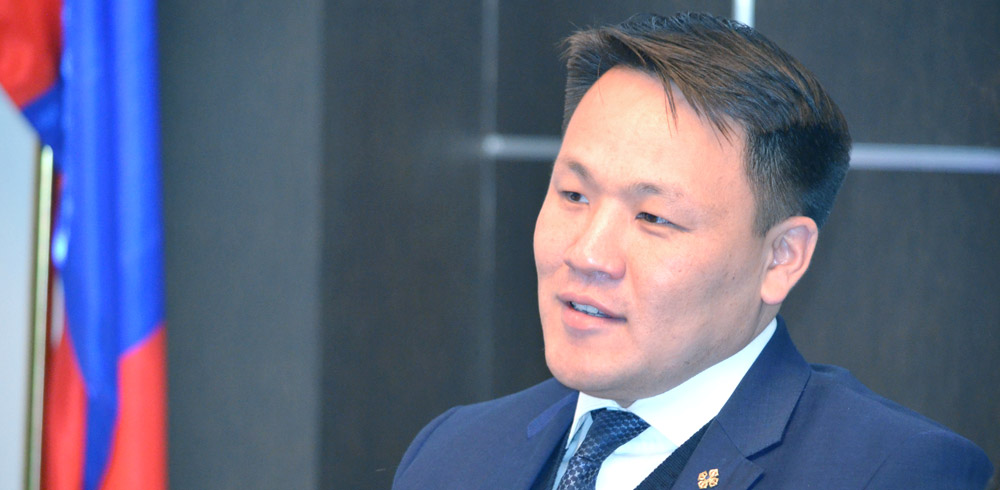Fuel rationing via QR code – Sri Lanka implements ‘National Fuel Pass’
As soon as WEF contributor, Ranil Wickremesinghe, took over as president of Sri Lanka, a QR code for fuel price rationing was announced. This is a blueprint for what many more countries are likely to face.
Published: July 24, 2022, 10:47 am
Ranil Wickremesinghe is the new president of Sri Lanka and also a member and agenda contributor of Klaus Schwab’s World Economic Forum (WEF). No wonder, then, that the latter is also helping to implement, step by step, the globalist organisation’s plans for total control and subjugation of countries to the Great Reset agenda.
The president has also found a suitable globalist supporter in Energy Minister Kanchana Wijesekera, who has now announced the “National Fuel Pass”.
“After initial technical problems, the FuelPass QR system was successfully tested today. [The] pilot project will continue before it is rolled out nationwide next week. The fuel quota for the last digit on the number plate will ease fuel lines over the next few days and speed up distribution across the island,” Wijesekera wrote in a tweet.
“I thank the petrol station owners who have supported the project, the public who have embraced and supported it, the emergency services and volunteers who have helped implement it. Some petrol stations didn’t adopt it, [and] some people manipulated [or] forged [QR codes] and didn’t want it to be implemented. However, it will be enforced island-wide.”
From now on, there will be a certain amount of fuel every week for people to fill up two days a week, the energy minister said. Accordingly, Sri Lankans will have to apply with their identity card number. Once their ID and other details are verified, they will be assigned a QR code that will allow them to fill up at petrol pumps across the country.
Citizens will then be prompted to fill up based on the last digit of their vehicle registration number in turn. Tourists and foreigners, however, are given priority, at least in the capital Colombo. Apparently, this is to avoid further damage to the country’s tourism industry, especially since foreigners also bring foreign currency into the country, which is urgently needed.
Given that the West is currently trying to successively sanction Russian oil (and its derivatives), which will also cause a shortage of diesel and petrol, this measure in Sri Lanka can also be seen as a blueprint for what is yet to happen in Europe.
Without such digital IDs with QR codes, with which our vaccination status, our vehicles and who knows what else are queried, we might not be able to buy food or even fill up with petrol in the future.
The economic crisis in Sri Lanka has seen millions of people facing acute shortages of not only fuel, but also food, cooking gas and medicine. Former President Rajapaksa’s infamous “green” fertilizer ban contributed largely to the famine the island is currently experiencing.
Same WEF playbook for Dutch farmers?
In the Netherlands, farmers protesting the government’s “green” plans to regulate their livelihoods out of existence and seize their farms have continued their campaign. Already, similar protests have popped up in Italy, Poland, and Germany.
‘Protests are growing. They’re certainly not stopping at this moment!’
Politician Pepijn van Houwelingen joins Neil Oliver Live to discuss the Dutch famers’ campaign against cuts to livestock.
💻 GB News on YouTube https://t.co/KHMl3BS8eC pic.twitter.com/kEvAfCw9Kt
— GB News (@GBNEWS) July 23, 2022
On Saturday, tens of thousands of people in Amsterdam took part in a protest in support of farmers and truckers, among others. They gathered on Dam Square and then walked around the city.
On the Dam were tractors and trucks decorated with banners. The demonstration was part of a worldwide protest. Many people carried an upside-down Dutch flag and wore red farmer’s handkerchiefs.
During the protest, a video message was shown from the American ex-general Michael Flynn, expressing support for the Dutch farmers. “We stand shoulder to shoulder with you. The world is behind the farmers. Your fight is our fight,” Flynn said, urging everyone to put up Dutch flags on social media.
“All our rights are under attack,” Flynn continued. “We have not given permission to have our freedoms taken away. And for that reason, many countries are beginning to rise up against their tyrannical governments.”
All over the world people are peacefully resisting the globalist elites, said the former general. Flynn told the Dutch farmers: “We admire your courage and we fight to defend your land. Your freedoms are under attack and we stand behind you.”
German ‘green’ resolve imploding
After almost five months of war in Ukraine, the German government’s Russian energy boycott policy is dramatically losing support among the population. Even in politics, sobering voices are heard. The Bavarian CSU Prime Minister Söder was quoted in the weekly Bild am Sonntag as saying: “The strategy of quickly bringing Russia to its knees with sanctions has not worked so far.”
Clearly, the globalist Söder is backing down because there has been a marked change in the public mood. Perseverance is quite different from exploiting anti-war sentiments for a week or two.
Shortly after the war in Ukraine began in February, 61 percent of Germans were still in favor of stopping Russian gas imports. That is no longer the case. According to a current INSA survey, 74 percent expect an economic downturn and an increase in unemployment in Germany, while 83 percent believe that prices will continue to rise.
Some 63 percent expect a gas emergency in which the gas will be turned off, and 83 percent expect restrictions for private households.
Particularly dramatic – and a resounding slap in the face for the Scholtz administration, is that almost every second person (47 percent) believes that Germany is harming itself more than Russia with the sanctions. Only 12 percent believe that Russia will suffer more damage.
The government could soon face an icy headwind, at the latest when apartments turn cold.
All rights reserved. You have permission to quote freely from the articles provided that the source (www.freewestmedia.com) is given. Photos may not be used without our consent.
Consider donating to support our work
Help us to produce more articles like this. FreeWestMedia is depending on donations from our readers to keep going. With your help, we expose the mainstream fake news agenda.
Keep your language polite. Readers from many different countries visit and contribute to Free West Media and we must therefore obey the rules in, for example, Germany. Illegal content will be deleted.
If you have been approved to post comments without preview from FWM, you are responsible for violations of any law. This means that FWM may be forced to cooperate with authorities in a possible crime investigation.
If your comments are subject to preview by FWM, please be patient. We continually review comments but depending on the time of day it can take up to several hours before your comment is reviewed.
We reserve the right to delete comments that are offensive, contain slander or foul language, or are irrelevant to the discussion.

India in the grip of icy cold weather
New DelhiThe past few weeks have seen unusually cold weather sweep across northern India, with disastrous consequences for the millions of Indians who live there and are unaccustomed to the cold.

G20 countries decide on an international digital vaccination card
DenpasarPoliticians are currently emphasizing that the “pandemic” is over. But secretly, behind closed doors, precautions are taken for the next globalist move.

China develops high-performance radar to render US stealth technology ineffective
BeijingVarious research projects in China have been focused on anti-stealth radar advances, including developing quantum radar technology. China has reported yet another breakthrough in its technological competition with the US.

Microchip wars heating up over Taiwan
BeijingA reporter from the Taiwanese state media TVBS reported that, according to her sources, speaker of the United States House of Representatives Nancy Pelosi will be arriving in Taipei on August 2. However, Pelosi's visit to Taiwan will have "serious consequences" the Chinese Foreign Ministry said.

A Kennedy-like assassination shakes Japan
TokyoThe murder of Japan's 'shadow shogun' Shinzo Abe raises many questions. Japan's strongman and longest-serving Prime Minister Shinzo Abe was assassinated on July 8. Before stepping down as prime minister for a second time in 2020, after a total of nearly nine years in power, Abe was instrumental in pulling Japan out of the country's dire economic crisis. He did it with his own economic policy, "Abenomics".

Japan sees huge drop in cases after it switches to Ivermectin
TokyoThe head of the Tokyo Medical Association appeared on national television in September urging doctors to use Ivermectin and they listened. A little over a month later, Covid-19 is under control in Japan.

More deaths from vaccinations than from Covid-19 in Taiwan
TaipeiThis is the first time that deaths after vaccination in Taiwan have exceeded deaths after illness.

China: No internet access without facial recognition
BeijingAs of December 1, the Chinese state is forcing all of the country's 1,44 billion citizens to scan their faces before they are allowed to obtain mobile or Internet subscriptions. Facial recognition as a requirement for using the Internet is the latest in a one-party state's increasingly far-reaching efforts to keep track of its citizens. Combined with the world's most comprehensive camera surveillance, as well as new supercameras and advanced AI-based software, the Chinese Communist Party is fast approaching near total surveillance. The technology is now on its way to Europe, accelerated by alleged needs to maintain virus restrictions.

Prominent Mongolian politician arrested ahead of election
Since the fall of communism in 1989 Mongolia has grown into a developed democracy, but alarming signs are beginning to appear. The prominent politician Nomtoibayar Nyamtaishir was arrested, despite the fact that according to Mongolian law he has immunity until the election on June 24.

